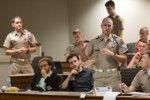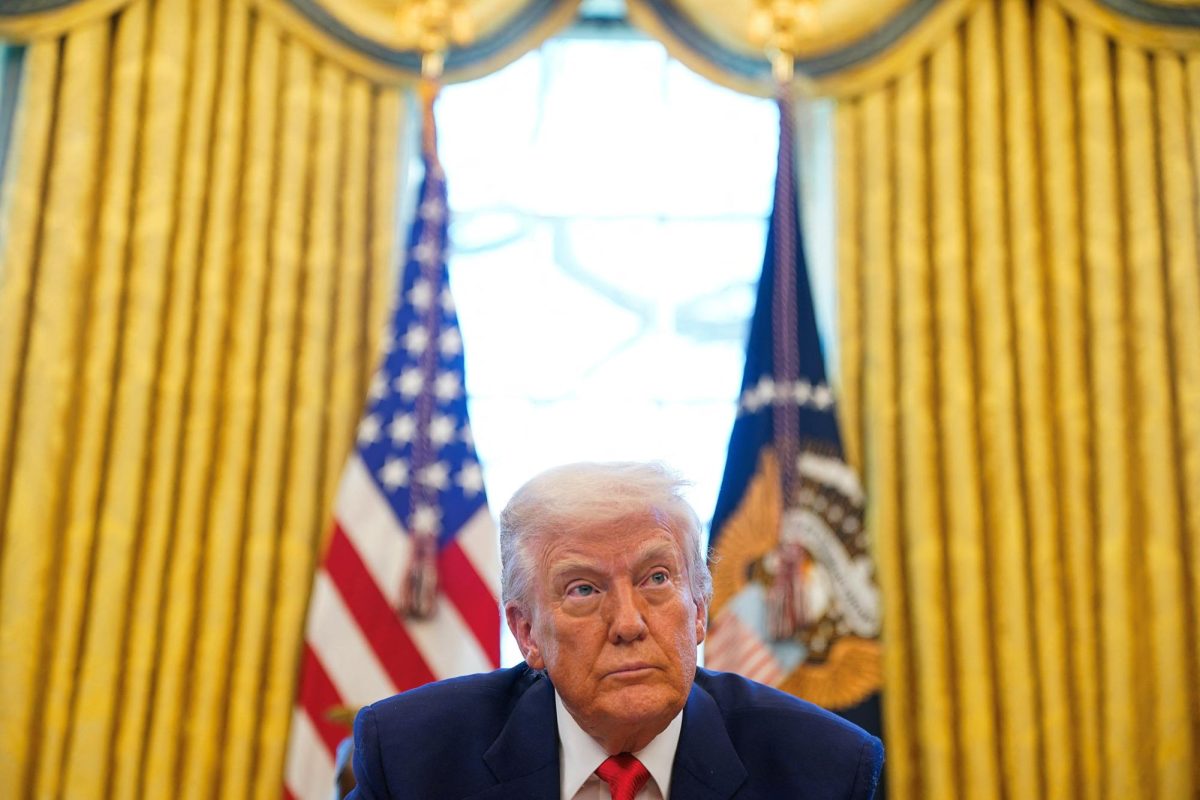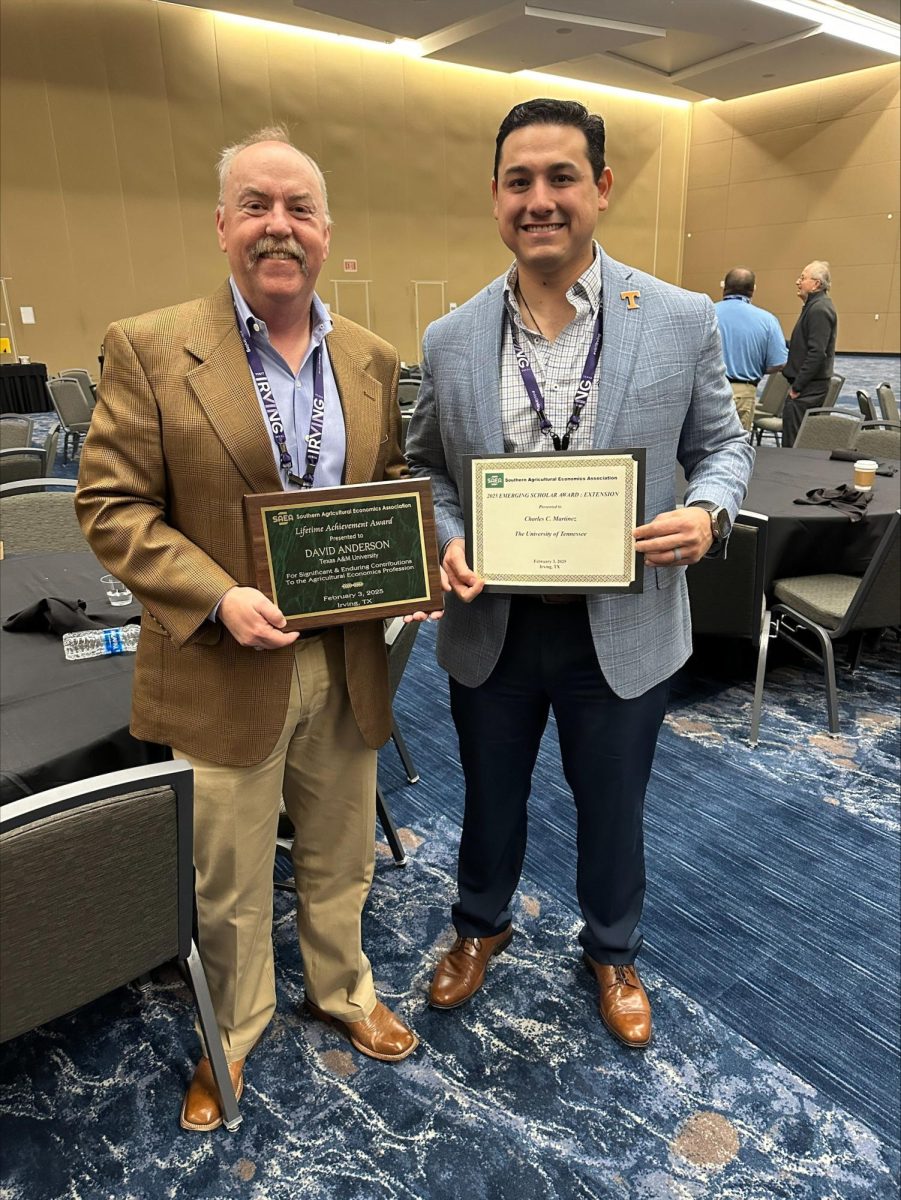After a year of preparation, MSC SCONA hosted its conference, “Caught in the Sandstorm: From Persia to the Sahara.”
The annual week-long conference is centered on international policy and SCONA invited expert speakers to discuss real world issues with A&M students and the local community.
Ross Brady, chair of SCONA and senior urban planning major, said this year’s conference focused on the Middle East and North Africa and how recent events play into U.S. policy. The theme was chosen last March, soon after last year’s February conference ended.
“It’s always difficult to pick the conference themes, because you have to pick them in about March in order to get a full year of planning, which is what it takes to put on this conference,” Brady said. “You have to be able to look a year into the future and pick a topic that’s going to be interesting and relevant the next February.”
Hunter Hampton, director of programming for SCONA and sophomore international studies major, said this year’s theme is a topic of interest because, in recent years, the public thought the Middle East and North Africa were going to fade from attention, but events have brought it back into the spotlight.
“The Arab Spring expedited the fall of several dictatorships and constituted a profound paradigm shift in the way that our government relates to the affected countries,” Hampton said. “Along with that, Iran continues its no-compromise position on their nuclear program, despite engaging in ground-breaking diplomatic talks with the United States.”
Brady said the event is significant for students because it gives them the opportunity to gain experiences that people in the workforce haven’t had.
“[The conference] provides opportunities to interact with people who an ordinary student would not have the ability to interact with,” Brady said. “[You are] getting this insight that you wouldn’t ordinarily have and bringing that to Texas A&M.”
Brady said he is excited about the variety of speakers SCONA is hosting this year, including retired four-star U.S. Marine Corps Gen. James Mattis, who Brady said is a kind of celebrity among Marines and who spoke in Rudder Theater Thursday afternoon.
“The majority of our speakers are coming from outside of A&M because that’s the whole purpose of SCONA, is to bring insight and discussion to A&M that the student body wouldn’t be having otherwise. This year, we definitely have a very diverse slate of speakers, and that always depends on who we can connect with that year and what their schedules are,” Brady said.
Callie Copeland, vice chair of SCONA and senior English major, said Mattis was a sincerely humble man.
“[Mattis] is very laid back and just a very genuine person,” Copeland said. “He doesn’t talk to you like he’s this super great guy that he is, he talks to you like a friend.”
Mattis shared his opinion and insight on current military political issues, speaking for approximately half-an-hour before allowing for a half-hour question-and-answer session.
Adrian Guajardo, senior university studies major, said he wanted to attend Mattis’ speech to be better informed about his career choice with the U.S. Army.
“I’m an army contract,” Guajardo said. “I am going to be an officer in the army, so listening to political military opinions over current and future and even past issues is informative for me.”
Guajardo said he also looks forward to other SCONA events and that the conference is a valuable asset for students who enjoy politics.
The conference began Thursday morning, with a group of 151 delegate students having participated in a two-day pre-conference event, the International Strategic Crisis Negotiation Exercise. Brady said the ISCNE has been a part of the SCONA conference for four years, but the time has been extended as the result of popular request.
“One thing that we have done differently this year is that ISCNE is a full two days this year, whereas in the past it’s just been two hours on the Tuesday and all day Wednesday,” Brady said. “They want to find their solution to this diplomatic problem so much that they want that extra time.”
The goal of the exercise is to split students into “nation” groups that then meet with mentors invited from the Army War College to discuss key issues, ranging from oil revenue to border disagreements, before meeting in a model UN session, set in the year 2021, to attempt to solve issues with the other nations. This year’s meeting centered around problems between Sudan, South Sudan and the Sudan People’s Liberation Movement-North.
Brady said the problems the students are given are difficult by design and often the meeting will end without issues being resolved.
“Every scenario that they choose is one that really has been gridlocked for professional diplomats and they have been working on for up to 25 years,” Brady said.
After closing the session, Andrew Natsios, a professor at the Bush School, connected the student meeting to real world events.
“I wish all of you could be in the place of the people going through this in reality because we’ve reached an agreement on a large number of issues and I want to compliment all of you for doing it,” Natsios said. “The problem, of course – and this is true in all diplomacy – it’s always in the implementation that things get screwed up. There isn’t complete trust, people reinterpret the words and interest groups within these three groups will start complaining that their interests aren’t fully protected.”
SCONA will continue through Saturday evening. Students, faculty and members of the Bryan-College Station community are welcome to attend the open forum speaker events throughout the conference.
Mid-East dissected
February 20, 2014

0
Donate to The Battalion
$2790
$5000
Contributed
Our Goal
Your donation will support the student journalists of Texas A&M University - College Station. Your contribution will allow us to purchase equipment and cover our annual website hosting costs, in addition to paying freelance staffers for their work, travel costs for coverage and more!
More to Discover









